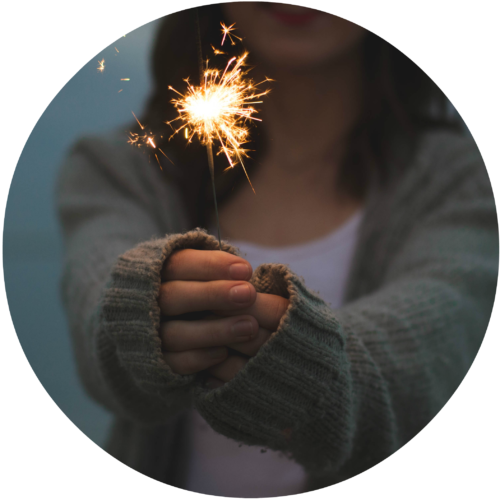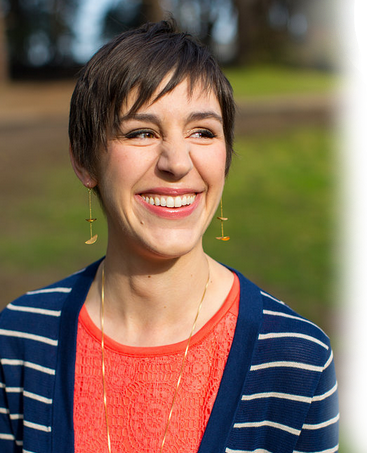
All of us feel fear at one time or another. Fear of failing, of having regrets, of not fitting in, of not being good enough, of being alone, of being judged. The list goes on.
When it comes to finding work you love, fear tends to crop up big time. As soon as we start to dream of or take steps toward a life and career that’s more fulfilling and HAPPIER, fear steps in and tells us all the reasons why what we want won’t work.
Fear used to paralyze me. I knew I was unhappy in my string of corporate jobs but I didn’t know what to do instead. I was scared that I’d never figure out what I wanted to do with my life, scared of taking a leap only to realize it was the wrong choice, scared of running out of money or disappointing those I loved if I quit my “safe” job. This list goes on.
Once I did start to have some clarity about what fulfilling work might look like for me a new set of fears cropped up: fear of failing, of changing my mind, of having those close to me not understand or accept what I wanted to do.
To deal with it I did what many of us do when we feel scared:
We try to avoid it. In my case that meant drinking a glass of wine (or two) every night while I numbed out surfing the web or watching TV. I jumped from one job to the next every couple of years, always hoping the next one would be better – even if I knew deep down that it wouldn’t.
We wait. For 15 years I stayed in jobs that didn’t make me happy. But what I was really doing was waiting.
Waiting to become fearless.
In my mind one day something would click, the fear would be gone, and THEN I would have the courage to figure out and follow my dreams. In the meantime at least I was building a resume of marketable skills, right?
But even if things looked good on paper, deep down I was miserable. And the fear was just keeping me stuck.
From my own journey and from my work as a coach, here’s what I’ve learned about fear:
1) Courage requires action. A huge shift for me was realizing that courage wasn’t this magical thing that might show up at my door one day if I got lucky or waited long enough. I used to look at people who seemed fearless and wondered what their secret was. But the truth is, courage is a choice that we make every day.
You can’t think your way to courage. Courage requires action.
As my mentor, Kate Courageous says, courage takes practice. Every time you take a step forward, even when you feel scared or uncertain, you’re practicing courage.
2) Being courageous doesn’t mean you no longer feel scared. Courage not only takes practice, it’s a lifelong practice. We don’t practice courage a few times and then suddenly become fearless. Being courageous means recognizing that fear will continue to come up, but in every moment we can choose to move forward even when things feel hard. When you really and truly accept that, there’s actually a kind of freedom that comes with it. Fear doesn’t have to stop you in your tracks. It can become something to just be aware of – a normal part of your process.
3) The only way to really be free of the fear of something is to do that thing you’re scared to do. The only way through is through. Trying to avoid our fear or wait it out doesn’t work. What does work is being honest about how you feel and then taking steps towards your dreams even though you feel scared. As Eleanor Roosevelt said, “You must do the thing you think you cannot do.”
4) It’s ok to start small. Practicing courage doesn’t mean you have to do something drastic like quit your job tomorrow or sell all your belongings and move across the country. Setting up expectations that courage has to mean doing something really BIG can just keep us from doing anything at all. Every small step counts.
5) Acting courageously is easier when you have someone on your side. Fear gets bigger when we isolate ourselves. When you speak your fear out loud to someone you trust it’s incredibly powerful. Most of the time, sharing our fears makes them feel a little less scary. And giving your fear a voice can help you start to question which parts of it are really true.
I would love to know…
Where is fear keeping you stuck?
What do you tend to do when you feel scared?
What’s one (small) courageous step you could take instead?

